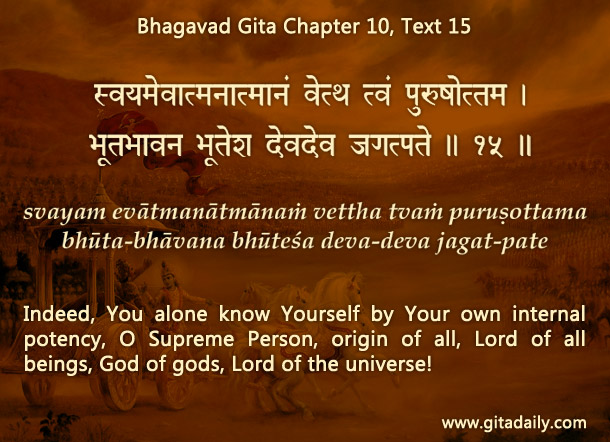Suppose we look at a person through a camera frame to click their photo. But just as we focus, they grow beyond the frame. We expand the frame, but they outgrow that expanded frame. When this goes on continuously, we acknowledge that we can’t capture them fully in any photo.
A similar dynamic occurs when we strive to know God using appropriate analytical frameworks. Such frames can help us understand him better. But just as we think we have got a hang of him, we encounter some divine feature that doesn’t fit in that frame.
Consider the frame that God possesses completely the six opulences: wealth, beauty, strength, wisdom, fame and renunciation. Using this frame, we may gradually wrap our head around the idea of a person who manifests these qualities fully. And then we may learn a divine attribute outside that frame: God’s qualities are uncountable, like the atoms in the universe.
These two frames, God’s having six qualities and his having infinite qualities, serve particular purposes. Whereas the second frame underscores God’s infiniteness, the first frame highlights his attractiveness – whatever attracts us, that attractiveness resides perfectly in God. Different frames, by highlighting particular aspects of God’s greatness, enhance our appreciation of him.
Still, while using such frames, we need to remember that they can’t capture God fully – he remains transcendent to them. The Bhagavad-gita (10.15) stresses Krishna’s transcendence when declaring that no one except Krishna knows him. This declaration’s position is telling. It comes after Arjuna has heard the Gita’s four nutshell verses (10.08-11) and has eloquently reiterated Krishna’s supreme position (10.12-13). Then, he announces that no one knows Krishna (10.14) – no one, that is, except Krishna (10.15).
Thanks to Krishna’s unendingly outgrowing our frames, our journey towards knowing him beckons us eternally as a series of ecstatic discoveries.
To know more about this verse, please click on the image
Explanation of article:
Podcast:


GOD is everywhere.